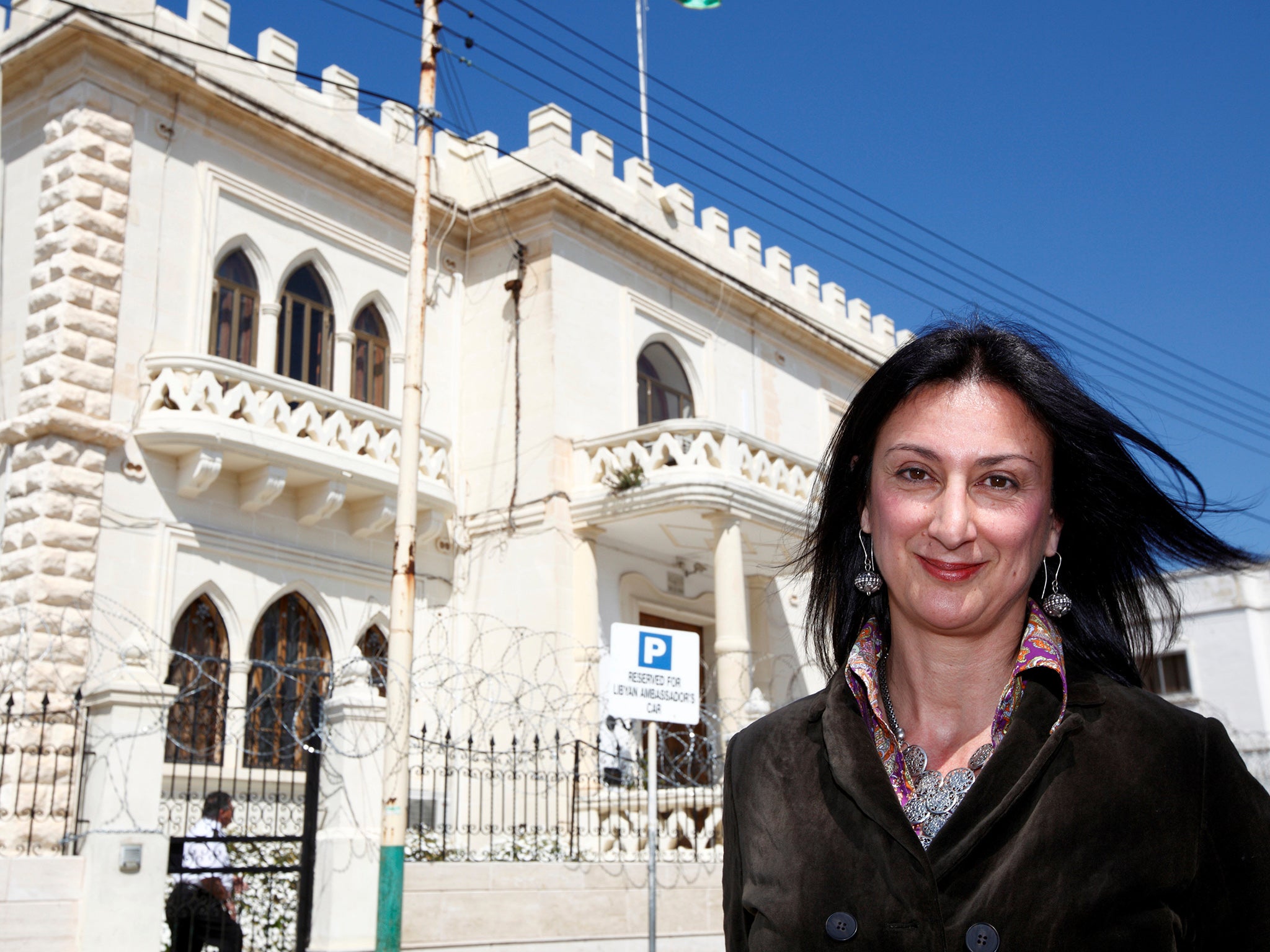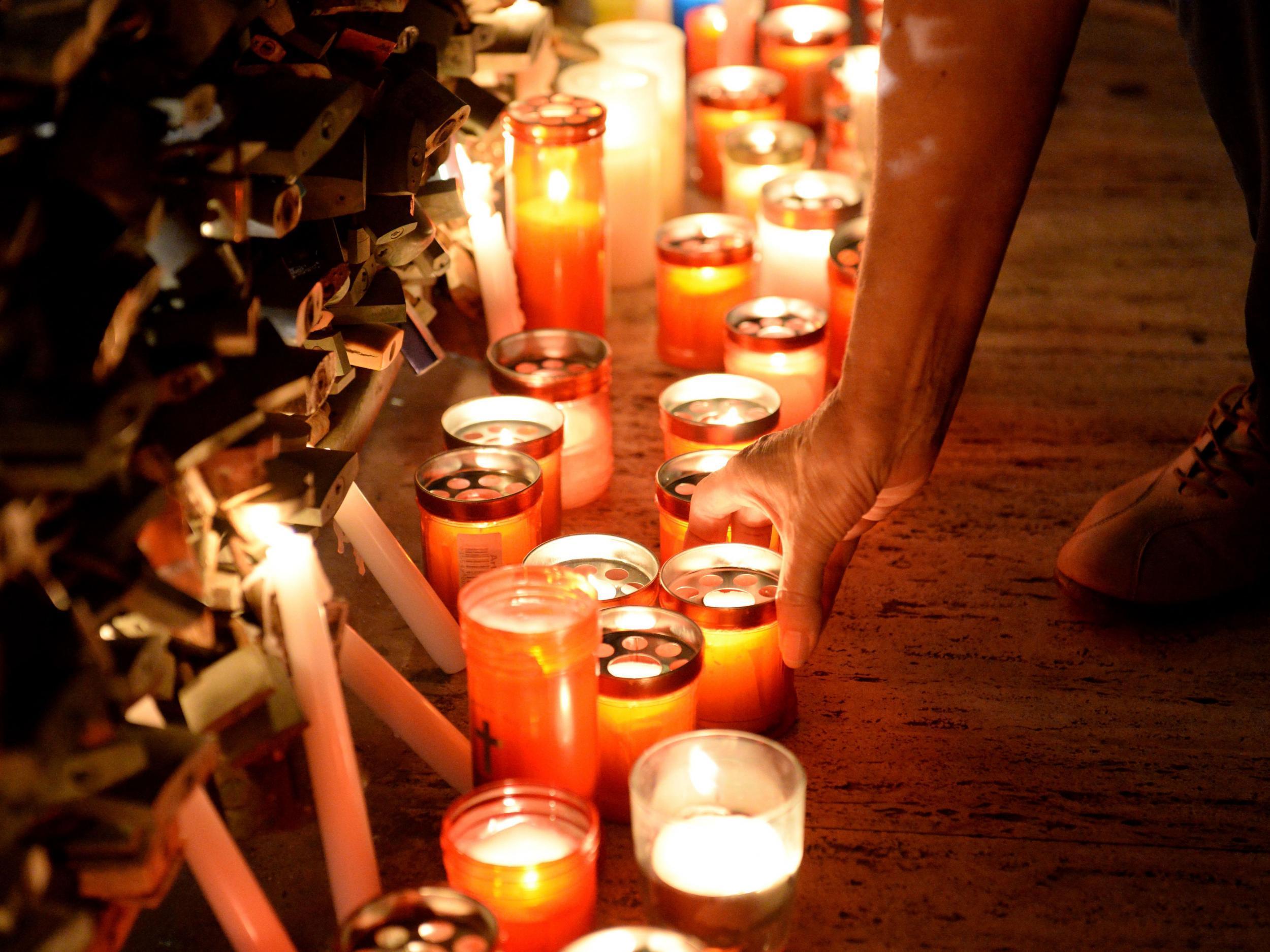Daphne Caruana Galizia: Journalist who exposed corruption in Malta and broke the Panama Papers scandal
Killed by a car bomb this week, her death drew thousands to the streets. Now her family is calling for the country’s Prime Minister to step down

Your support helps us to tell the story
From reproductive rights to climate change to Big Tech, The Independent is on the ground when the story is developing. Whether it's investigating the financials of Elon Musk's pro-Trump PAC or producing our latest documentary, 'The A Word', which shines a light on the American women fighting for reproductive rights, we know how important it is to parse out the facts from the messaging.
At such a critical moment in US history, we need reporters on the ground. Your donation allows us to keep sending journalists to speak to both sides of the story.
The Independent is trusted by Americans across the entire political spectrum. And unlike many other quality news outlets, we choose not to lock Americans out of our reporting and analysis with paywalls. We believe quality journalism should be available to everyone, paid for by those who can afford it.
Your support makes all the difference.Daphne Caruana Galizia, who was killed by a car bomb this week, was a leading investigative journalist in Malta celebrated for her dedication to exposing corruption. Galizia fearlessly took on politicians of all stripes, weeding out wrongdoing within her country’s political and criminal justice systems.
The 53-year-old’s personal blog, Running Commentary, was as one of the most popular websites in Malta, receiving as many as 400,000 visits a day – almost equal to the Mediterranean’s population of 420,000. She gained acclaim across the world for her role in exposing the Panama Papers scandal.
Galizia was the first to break the news of the involvement of prominent Maltese politicians in the exploitation of offshore tax regimes. Her work on the explosive tax evasion case, which involved some of richest and most powerful people in the world, is what prompted political news website Politico to hail her as a “one-woman Wikileaks, crusading against untransparency and corruption in Malta”.
Born Daphne Anne Vella in 1964 to Michael Alfred Vella and Rose Marie Vella née Mamo, the writer studied at St Dorothy’s convent in Mdina and St Aloysius’ College in Birkirkara before attending the University of Malta and graduating with a degree in archaeology in 1997. She went on to marry Peter Caruana Galizia in 1985 and had three sons: Matthew Mark John, who grew up to follow in his mother’s footsteps as a journalist, Andrew Michael Louis and Paul Anthony Edward.

Galizia began working as a journalist shortly after her marriage in 1987, becoming a regular columnist with The Sunday Times of Malta and later, an associate editor and columnist for the Malta Independent, to which she contributed a weekly column for the past 20 years..
She made it her mandate to thrust “cronyism that is accepted as something normal [in Malta]” into the spotlight. “I can’t bear to see people like that rewarded,” she said. The journalist was unrelenting and fierce in her criticisms, often branding politicians “crooks” and “liars”.
While many have hailed Galizia as a hero, the journalist’s tireless efforts to shine a light on disorder earned her many enemies. John Dalli, a former European commissioner that she helped to take down in a tobacco lobbying scandal, went so far as to label the journalist a “terrorist”.
The writer was also a forceful critic of Malta’s Prime Minister, Joseph Muscat, who she regularly lambasted on her website. Muscat was quick to condemn the journalist’s killing, calling it a “political murder”. “Everyone knows Ms Caruna Galizia was a harsh critic of mine, both politically and personally, but nobody can justify this barbaric act in any way,” he said.
Still, Galizia’s three sons have demanded that Mr Muscat step down, writing on Facebook: “The police may or may not find out who ordered the assassination of our mother, but as long as those who led the country to this point remain in place, none of this will matter.” They said that the only way forward would be for the Prime Minister to “resign for watching over the birth of a society dominated by fear, mistrust, crime and corruption.”
Opposition leader Adrian Delia, who also frequently found himself in Galizia’s line of fire, called the journalist’s death a “total collapse of the rule of law” and demanded an independent investigation into her killing. Galizia had been sued more than once for libel over allegations she had made in her blog, including by Mr Muscat, who had been in the process of suing her at the time of her death and Mr Delia, who had sued over stories linking him to a prostitution racket in London.
Galizia’s son Matthew was on the International Consortium of Investigative Journalists team that won the Pulitzer Prize for its work on the Panama Papers case. He said he was certain she “was assassinated because she stood between the rule of law and those who sought to violate it, like many strong journalists”. But he added: “She was also targeted because she was the only person doing so [in Malta]. This is what happens when the institutions of the state are incapacitated – the last person left standing is often a journalist. Which makes her the first person left dead.”
In fact, Galizia had filed a police report two weeks before her death saying she had been receiving threats. And in her last blog post, believed to have been written just before she left her house moments before her death, the journalist issued a now haunting warning in her final line. “There are crooks everywhere you look,” she wrote. “The situation is desperate.” Desperate enough for someone to plant a bomb on her vehicle, a Peugeot 108. It exploded with such force it was sent flying over a wall and into a field, where its burnt-out frame was found.
An outpouring of support and calls for justice reverberated across Europe in the wake of her death. In Sliema, near the capital of Valetta, thousands came together on Monday to honour Galizia with a silent candlelit vigil. Even the Holy See was touched by her death, with Pope Francis penning a rare letter offering his condolences to Galizia’s family – an uncommon gesture after the death of a private citizen. The Pope said he was “saddened by the tragic death” and said he was praying for the journalist’s family, as well as the Maltese community at this “difficult moment”.
The Malta Independent published an empty front page with a single black ribbon in the centre and a pledge to continue her legacy on the day her next column would have run. “Your pen has been silenced,” the tribute read. “But your voice will live on.”
Daphne Caruana Galizia, journalist, born 26 August, 1964, died 16 October 2017
Join our commenting forum
Join thought-provoking conversations, follow other Independent readers and see their replies
Comments